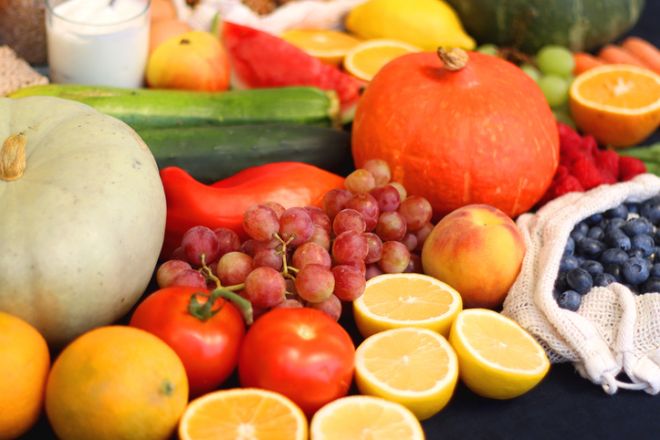Here's Why Frozen Produce Can Be A Better Option Than Fresh
The Cold Hard Truth: Frozen Produce Might Be Better Than Fresh

Looking to add more fruit and veggies to your diet? Try stocking up on frozen produce during your next store run instead of opting for organic fresh options. Health experts say frozen fruits and vegetables are a cost-effective way to keep healthy options in your fridge for longer, and they can contain even more nutrients than fresh produce.
Frozen Fruit Can Carry More Nutrients
Frozen fruit and vegetables are a fantastic option, especially if you don’t have easy access to fresh produce—and they come with some great health benefits. According to plant psychologist Gene Lester, frozen fruit and veggies are typically picked at their peak ripeness when they’re most nutrient-dense, unlike fresh produce that’s often harvested before it’s fully ripe to survive transport and storage. This gives frozen options a nutritional advantage right from the start.
RELATED CONTENT: 10 Simple Ways To Eat Healthier In 2025

In fact, a 2015 study found that frozen broccoli contained higher levels of riboflavin (Vitamin B2) compared to fresh broccoli. For most of the produce, there was no significant difference in Vitamin C levels between fresh and frozen, but frozen samples of three items (corn, carrots, and broccoli) had higher levels of Vitamin C compared to their fresh counterparts.
“If you pick vegetables at their ripeness peak, they’ve got their greatest abundance of nutrients, vitamins, and minerals—and that can be anywhere between 10% and 50% more than something that is commercially harvested as fresh,” Lester told CNN during a May 2019 interview.
Freezing can help to reduce nutrient loss during the blanching process
The freezing process is especially effective for vegetables, as it helps preserve nutrients that might otherwise be lost during blanching. Blanching involves briefly exposing veggies to hot water (between 90 and 95 degrees Fahrenheit) to stop enzymes that cause discoloration, browning, and flavor loss. However, this process can cause vegetables to lose up to 50% of their vitamin C, which is heat-sensitive, Lester explained.
You can keep your favorite fruits and veggies longer

Fresh produce is a great option if you’re good about eating your fruits and veggies before they spoil. However, if you’re prone to letting fresh items go bad, frozen produce offers the advantage of lasting longer—typically eight to 12 months, according to Livestrong. This gives you more time to enjoy your fruits and veggies. To get the most out of your frozen options, avoid those with added sauces, salt, or sugar.
Here’s a bonus tip. Pay attention to quality: check the bag and feel the contents. Frozen fruit and veggies should be solid and hard, not soft, mushy, or wet. If you feel a solid block, it likely means the product thawed and was re-frozen. Staining or ice crystals on the packaging can also signal thawing and refreezing, so keep an eye out for those signs.
RELATED CONTENT: From Seed to Table: 5 Pro Tips for Designing Your Dream Home Garden








